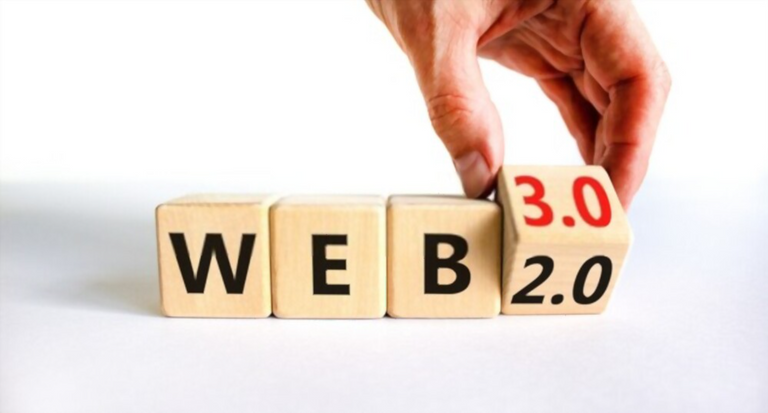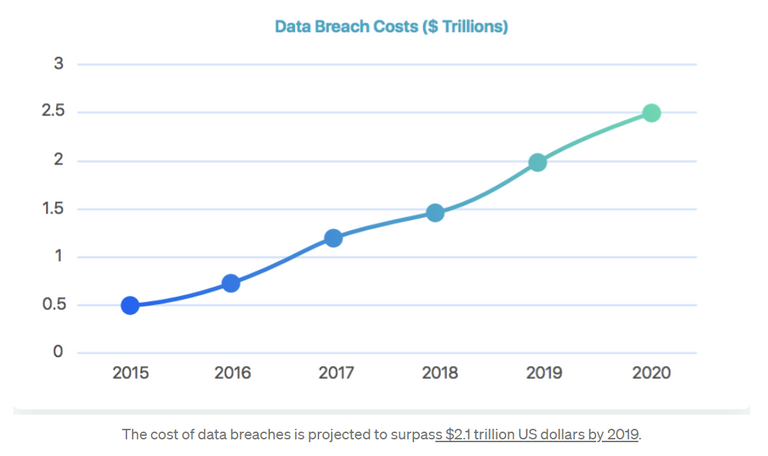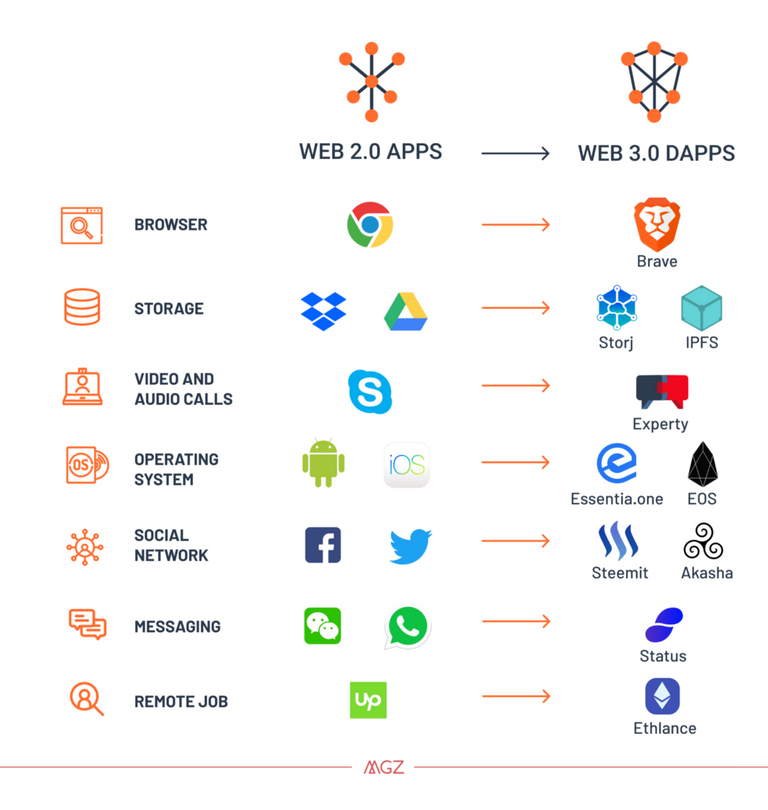Why Web 3.0 is Matters and What You Should Know

There's a lot of talk about Web 3.0 and the big changes it'll bring to the industry, but few people really understand why it's happening and what it means. It's necessary to go back in time and look at its predecessors, Web 1.0 and 2.0, in order to fully comprehend this.
Web 1.0 was not given a name until after it died, much like the Middle Ages. The 'World Wide Web,' as it was then known, was essentially a collection of static websites with a wealth of information but no interactive features. Connecting meant using rickety modems and preventing anyone else in the house from using the phone. It was the web of Ask Jeeves, AltaVista, MSN Messenger, and AOL chat rooms. It moved at an excruciatingly slow pace. Is it possible to watch and listen to videos and music online? Forget it. It'd take at least a day to download a single song.
And then there was 2.0.
The days of bleepy modems and uninteresting interfaces are mostly gone. Faster internet speeds paved the way for interactive content, and the web became a place where people could participate rather than just observe. The global sharing of information ushered in the age of "social media". Flickr, YouTube, Facebook, and Wikipedia gave the voiceless a voice and provided a platform for like-minded communities to flourish.
This article post should take me at least 30 seconds to publish, which is a significant improvement from the days when making a simple website changes, required a collaborative effort from designers, developers, and administrators. This is the Read-Write-Publish era, in which disseminating information is as easy as saying those three words. So, if Web 2.0 is so great, where did it all go wrong?
Information is a valuable commodity.
Between 2000 and 2015, the United Nations estimated that the number of internet users grew from 738 million to 3.2 billion. That's an enormous amount of data floating around, and as big digital corporations have discovered, personal data is a hugely valuable asset. As a result, massive data storage on centralized servers began, with Amazon, Facebook, and Twitter serving as the primary stewards. People traded security for convenience, and their identities, browsing habits, searches, and online shopping information were sold to the highest bidder, whether they were aware of it or not.
The 3.0 revolution
Web 2.0 proponents were already planning a successor at this point. They predicted that the next web would take a nostalgic turn toward the vision of web 1.0: it would be more "human" and private. Rather than concentrating the power (and data) in the hands of huge behemoths with dubious motives, It would be transferred back to its original owner.
The idea for a fairer and more transparent web first surfaced in 2006, but the tools and technologies to make it a reality were lacking. Three years later, Bitcoin, which introduced the concept of a distributed ledger, or blockchain, for peer-to-peer digital storage, was still three years away. Decentralization was the idea, and blockchain was the technology. The internet has evolved into a "human-centered" environment.
The pro-privacy, anti-monopoly web
While Web 2.0 has democratized many power structures and opened up new opportunities, the economic engine has been privatized and monopolized. Facebook, Uber, and Airbnb have monopolized public infrastructure by creating private networks. Web 3.0 is the antithesis. It all comes down to multiple profit centers sharing value across an open network.
It's easy to imagine a world where crypto-based phones, VPNs, decentralized storage, and cryptocurrency wallets are inescapable in the not-too-distant future. A future without the need for network and cellular service providers to censor or monitor our data. These are the tools we'll need if we don't want to end up in a Black Mirror-style privacy dystopia.
There is no central control point: Because middlemen are eliminated, blockchains such as Ethereum provide a trustless platform with unbreakable rules and fully encrypted data. User data will no longer be under the control of Alphabet and Apple.
End users will reclaim full control over their data while also benefiting from encryption security.
After that, information can be shared on a case-by-case, permission-based basis. Large corporations such as Amazon and Facebook now have factories of servers storing data on dietary preferences, income, interests, credit card information, and other personal information. It's not just for the sake of improving their services; marketers and advertisers pay billions of dollars each year for this information.
Hacking and data breaches are drastically reduced: Because data will be decentralized and distributed, hackers would have to shut down the entire network, rendering state-sponsored tools like Vault7, which are used by the three-letter agencies, obsolete. At that moment, internet companies must either hand over users' data or risk having their entire database scrutinized. These data breaches aren't limited to major security threats like terrorism;
In 2017, Coinbase sued the IRS for requesting access to the data of over 15,000 customers.

The case, which Coinbase eventually lost, paved the way for government agencies to snoop around in the accounts of tens of thousands of customers with little justification. Unfortunately, incidents like this are not uncommon; in 2013, the secure email provider Lavabit chose to shut down rather than hand over its SSL keys to the US government so that it could spy on Edward Snowden.
Interoperability:
Applications will be simple to customize and device-agnostic, allowing them to run on smartphones, televisions, automobiles, microwaves, and smart sensors. Applications are currently OS-specific and frequently limited to a single operating system. Many Android cryptocurrency wallets, for example, are not available on iOS, causing consumers who use multiple devices to be frustrated. It raises costs for software developers who must release multiple iterations and updates.
Permission-less blockchains:
Anyone with a computer can create an address and use the network. It's impossible to overestimate the power of being able to access permissionless chains. Users will not be denied access based on their location, income, gender, sexual orientation, or a variety of other sociological or demographic factors. Wealth and other digital assets can be transferred quickly and easily across international borders.
The likelihood of account suspension and distributed denial of service is greatly reduced. Service disruption will be minimal due to the lack of a single point of failure. To ensure redundancy, data will be stored on distributed nodes, with multiple backups in place to prevent server failure or seizure.
How will it work?
It is still being refined, as with any new technology. A seed will be all that is required to access the decentralized web.
This will be a single asset that allows dApps and other services to interact with each other. Individuals will still access the internet through a web browser, but it will be more user-friendly in terms of Web 2.0.
The transition from 2.0 to 3.0 will appear to be smooth on the surface. However, the framework that connects users to digital services is quite different behind the scenes. To prevent platforms from taking personal information without authorization, transactions are manually signed and verified. Rather than attempting —and frequently failing — to opt out, web users will opt in.
We have services like Storj, Siacoin, Filecoin, or IPFS technology to distribute and store files instead of Google Drive or Dropbox.
Experty.io, for example, can be used in place of Skype.
Medium, of course, will soon be completely replaced by Hives networks - ecency, peakd, blurt, etc.
Frameworks like Essentia.one and EOS provide a gateway to the new web instead of operating systems like iOS and Android.
Facebook will be replaced by Akasha or Steemit, Chrome will be replaced by the Brave browser, and Upwork will be replaced by Ethlance.

web2.0-web3.0
These are just a few of the possibilities. As Web 3.0 takes hold, new platforms will emerge with a healthy level of competition that is unfettered by monopolistic service providers. It's likely that the best-decentralized apps and services we'll use in three years' time are still just a glimmer in a developer's eye.
The idea is as follows: separate seeds, logins, and identities are required to access these interfaces, just as they are for Web 2.0. It will be a single seed to connect these disparate platforms for web3.0, because it will function as an encrypted key that can be linked to its owner. We3.0 will also provide proof of identity without disclosing any more information about that person's identity than is absolutely necessary.
The transition to 3.0 will take time and integration with existing online systems, just as Web 2.0 did not automatically extinguish Web 1.0 (which is still gathering dust in some parts of the internet). The train has left the station with its wheels already in motion. Web 3.0 is a revolution in the making, and we've already passed the point of no return.
![[GetPaidStock.com]-62a59c1769c75 (4).jpg](https://images.hive.blog/768x0/https://files.peakd.com/file/peakd-hive/botsrequired/23xf7B4EqjqhuuDSLhchqgsEAXCmJyoS1gxLJaCqZYutrXvKPdMDZNgqxdMyrUwVAFeE1.jpg)
Web 3 is a better version of what we know and have experienced. Plus the reduced risks associated with internet surfing. Anonymity comes with it as well which is a good thing.
Facebook is old school.
This Article is Plagiarized
Source of Theft
-.-
This blog post is blatantly stolen from: https://www.bitcoininsider.org/article/16465/why-web-30-matters-and-you-should-know-about-it with no credit given to the original author. Trying to make money from other people's hard work is theft and damages the reputation of the Hive blockchain as a source of original content. If you do not care about the success of Hive or your own reputation here, please go elsewhere to share stolen work.
I am writing to apologize for plagiarizing content from other sources and posting it on ecency. This was a serious mistake on my part and I am truly sorry for my actions.
Plagiarism is a serious offense that undermines the integrity of the content shared on ecency and the wider online community. It is important for all users of ecency to create and share original content and give credit to the original creators of any content that is used.
I understand that my actions were wrong and I take full responsibility for them. I assure you that this will not happen again in the future. I will make sure to properly research and cite any sources that I use in my future posts on ecency.
I hope that you will consider this sincere apology and allow me to continue using ecency. Thank you for your understanding.
Our delegation to this account has been revoked because of plagiarism.
Source of potential plagiarism
There is reasonable evidence that this article has been spun, rewritten, or reworded. Posting such content is considered plagiarism and/or fraud. Fraud is discouraged by the community and may result in the account being Blacklisted.
Guide: Why and How People Abuse and Plagiarise
If you believe this comment is in error, please contact us in #appeals in Discord.